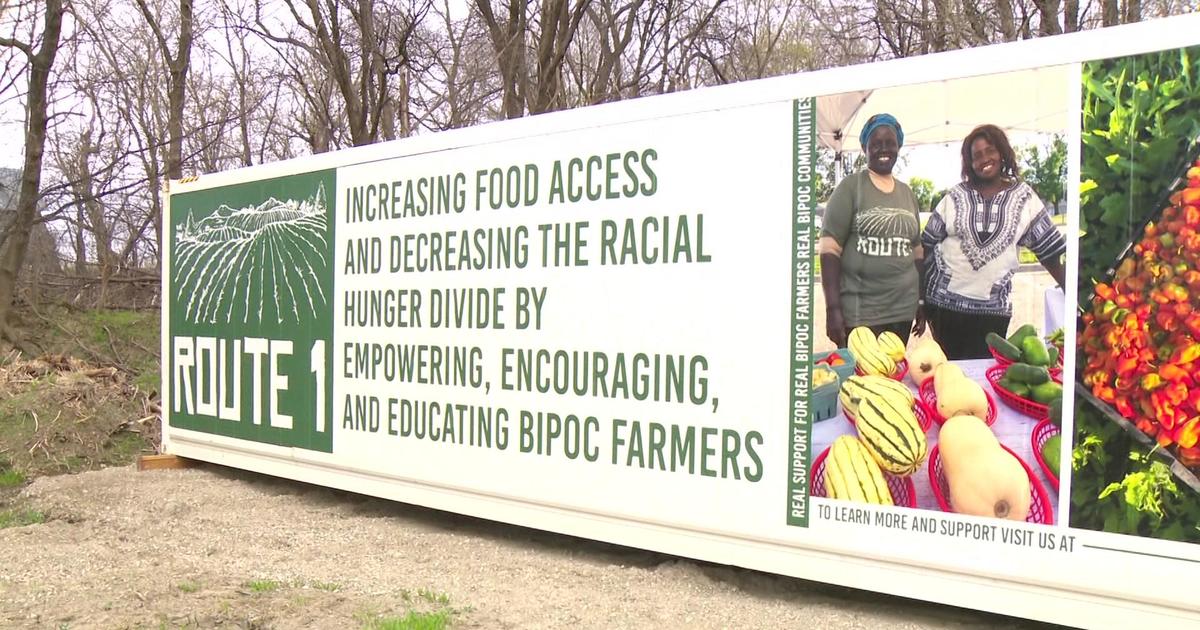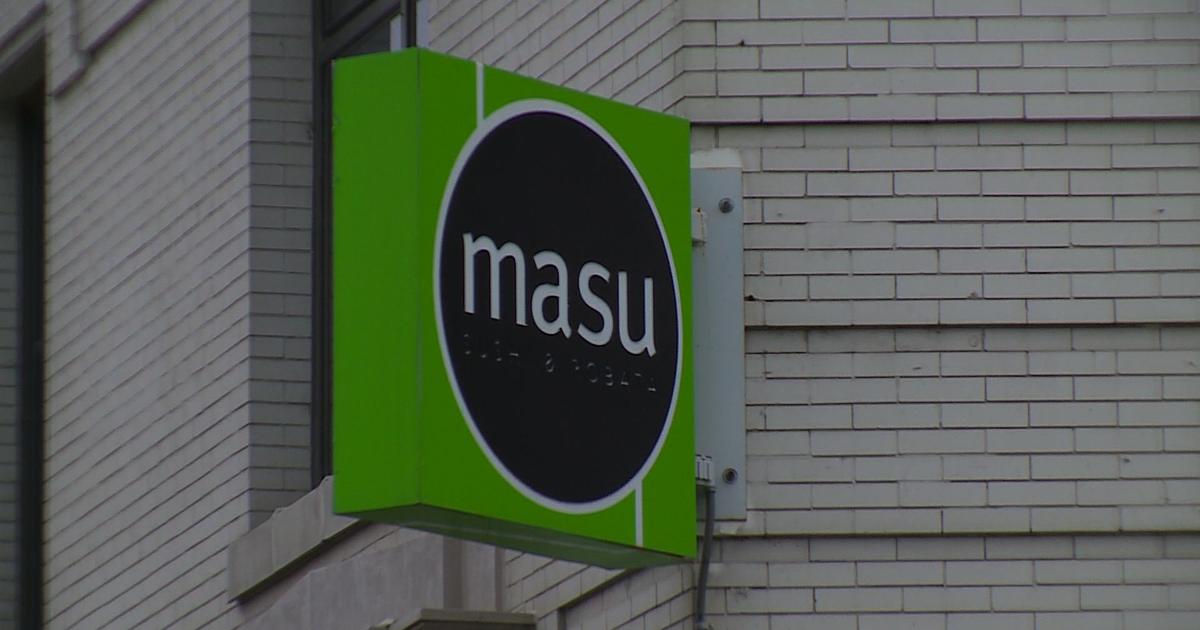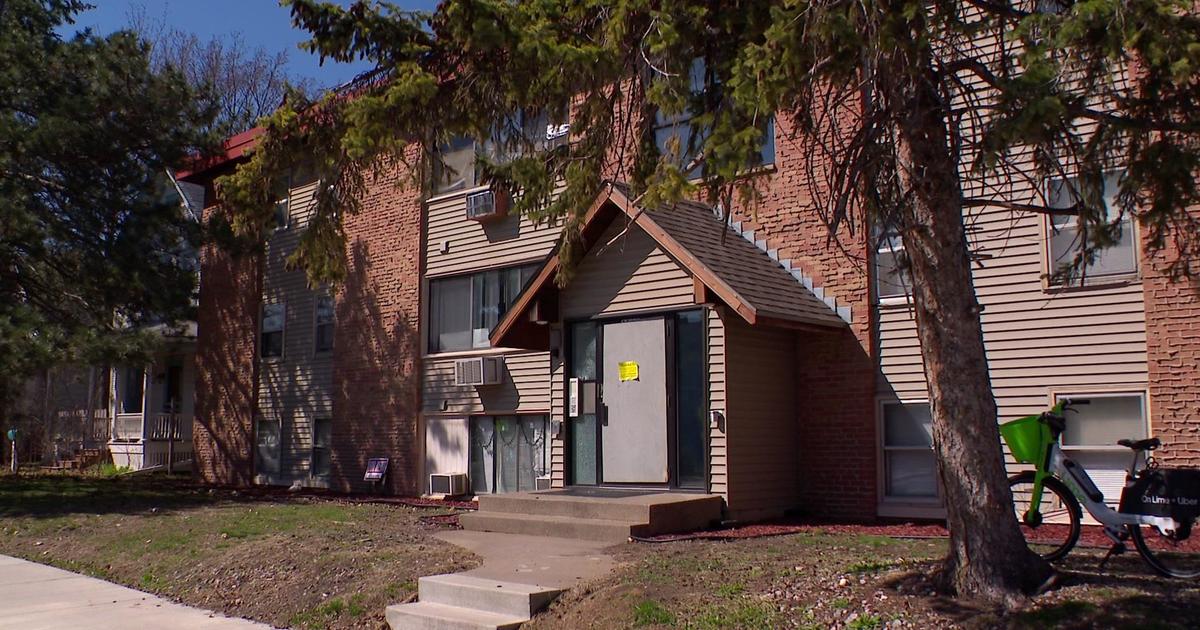Stimulus Package Update: Plan Should 'Give As Generous Aid To Local Governments As Possible,' Economist Says
By Norm Elrod
(CBS Detroit) -- Centrist Democrats and Republicans proposed a $908 billion coronavirus relief package last week, and it started to gain a little traction. Both parties see the need for additional stimulus, as COVID cases rise, the economy slows and millions of Americans risk losing their unemployment insurance and face eviction with winter approaching.
The bipartisan plan would renew additional federal unemployment benefits though April, in the amount of $300 per week. That would add up to about $180 billion. Another $288 billion would be allocated to small businesses, utilizing the Paycheck Protection Program to loan money to companies to continue paying employees. State and local governments would receive $160 billion to offset steep revenue declines. The framework also includes $25 billion in rental assistance and extends the eviction moratorium through January. It does not include a second round of stimulus checks.
On Tuesday, Treasury Secretary Steven Mnuchin proposed a $916 billion coronavirus relief package on the part of the White House. Like the bipartisan proposal, it includes aid for state and local governments as well as business liability protections. Both remain sticking points in negotiations. The former is supported by Democrats, and the latter is supported by Republicans. This latest proposal also drastically reduces funding for unemployment benefits, but offers a $600 stimulus check. The plan has no support among Democrats.
A larger spending deal to fund the federal government for another year is due by the end of this week. This is an opportunity to attach a second round of stimulus as well. But Democrats and Republicans still disagree on many spending issues. Congress will vote Wednesday on a stopgap measure that would delay a potential government shutdown by a week and buy itself more time to negotiate on spending matters. The House is expected to easily pass the short-term measure and then send it to the Senate. The delay will also push back any second stimulus package, which puts those at risk that much closer to the edge.
>>READ: Stimulus Package Update: Are Politicians Finally Ready To Make A Deal?
Many major economic stimulus programs are scheduled to expire by the end of the year. Key among them are eviction protections put in place by the U.S. Centers for Disease Control and Prevention and various states. The CDC order shields those making under $99,000 per year from eviction through the end of 2020, if the pandemic has caused them to lose income. Some cities and states instituted their own assistance and protection programs, which are also running out.
While federal protections put off paying rent for many, they did not forgive that rent. So those who were protected may still face eviction if they cannot pay the back rent they owe. (Some are already facing eviction.) Renters may owe upwards of $30 billion or more in back rent. Estimates claim over 30 million people in 17 million households could face eviction. According to the National Low Income Housing Coalition, the strain of mass eviction on public services would be considerable.
The effect of possible eviction on a household can be devastating. "They might try to cut back, if possible, on anything else that they can cut back, maybe food, and instead try to piece together rent," says Yeva Nersisyan, Associate Professor of Economics at Franklin & Marshall College. "Keeping in mind that the economy is supposed to serve the people and provision them with food, shelter and so on, in this case, we are failing to provide them with shelter. So that's a problem. And that's the government's responsibility to try to do something about it."
With the first stimulus package, the federal government did do something about it. That aid came in the form of increased unemployment benefits, the Pandemic Unemployment Assistance program (PUA) and the Pandemic Emergency Unemployment Compensation program (PEUC) among other ways. The extra $600 in weekly federal unemployment benefits added on top of state benefits expired in July. The PUA payments, to freelance workers who don't qualify for traditional unemployment insurance, run out near the end of the year. So do the payments from PEUC, which adds 13 weeks to state benefits, which tend to last between 20 and 26 weeks. All three programs have helped recipients pay for basic needs, shelter among them.
>>READ: Stimulus Package Update: Lawmakers Announce Bipartisan Coronavirus Relief Plan
State unemployment benefits, even those extended by PEUC, have already ended for many who lost jobs early in the economic crisis. That process continues as more people use up their benefits. In November, those unemployed long-term (at least 27 weeks) rose by 385,000 to 3.9 million. The long-term unemployed now account for 36.9 percent of all unemployed.
After the coronavirus pandemic took hold, the first stimulus package proved critical to keeping the economy afloat and generating some semblance of recovery. "It's probably hard to say where we would be without the stimulus," says Nersisyan. "But I would say we would be at depression-level employment numbers and income losses and GDP losses and so on. What happened was that private-sector spending was going down, and the government plugged in that decrease in spending, not directly by spending itself, but by giving people money to spend. So the stimulus checks, the unemployment benefits, which were extended and expanded with the extra $600 a week. Those were a big help."
The economy could face a similar tipping point now, with COVID cases spiking throughout the country, and states and cities ramping up restrictions, while key protections for vulnerable Americans expire. What could pull the country back from the financial cliff it seems to be approaching?
According to Nersisyan, "the simple solution would have been to extend the additional federal unemployment benefits, so to extend that beyond the 39 weeks, and to add the extra payment amount. The extra 600 was very good for the economy, but an extra 300, which has been debated, would still be preferable to nothing, because some states have very low unemployment benefits."
>>READ: 'Stimulus Checks Are The Least Important,' When Drafting Aid Package, Says Economist
And that includes continuing PUA benefits for gig workers. But increasing and extending unemployment benefits, both for traditional workers and freelancers, won't necessarily undo the damage that's been done in the months between stimulus packages. Those small companies that went out of business won't return when the economy improves.
Those small businesses that are still hanging on need help. "Providing assistance to small businesses, I would say that's absolutely essential," Nersisyan believes. "Because larger corporations can weather the pandemic. They have reserves, they can issue bonds in the bond market, and they can borrow at very low interest rates historically. They have their credit lines to big banks and so on. Smaller businesses have fewer of those opportunities."
Various states have tried to help small businesses, but they're navigating dire economic straits of their own. With revenues down, they're forced to address budget shortfalls, which generally means eliminating public jobs and services, just when people need them most.
The federal government can counter that if they "... give money to state and local governments, so that they don't slash jobs, and they don't cut their spending -- which you can see how the federal government is acting to increase spending, but state and local governments are acting in the opposite direction," Nersisyan explains. "That's what usually happens in a recession with them because of their no-deficit rules. And so we want to prevent that. We don't want one arm of the government trying to increase spending and the other arm decreasing. So I would say we need to try to give as generous aid to state and local governments as possible."
As Nersisyan stresses, "assistance to the unemployed -- the unemployment benefits -- assistance to small businesses and assistance to state and local governments, those should be the three things that another stimulus should prioritize. Absolutely."
The proposed $908 billion stimulus includes measures to aid the unemployed, small businesses and state and local governments. So does the new $916 billion proposal from the White House, albeit in different amounts. Will either be enough, and will something come in time to put food on people's tables and save them from eviction? "If Congress were to agree on that [$908 billion] pretty quickly," says Nersisyan, "I think we could see pretty smooth transition from the one package to the next."
But given how the pandemic and resulting economic crisis have played out so far, that's an awfully big "if."
Updated Wednesday, December 9 @ 4:00 p.m. ET



